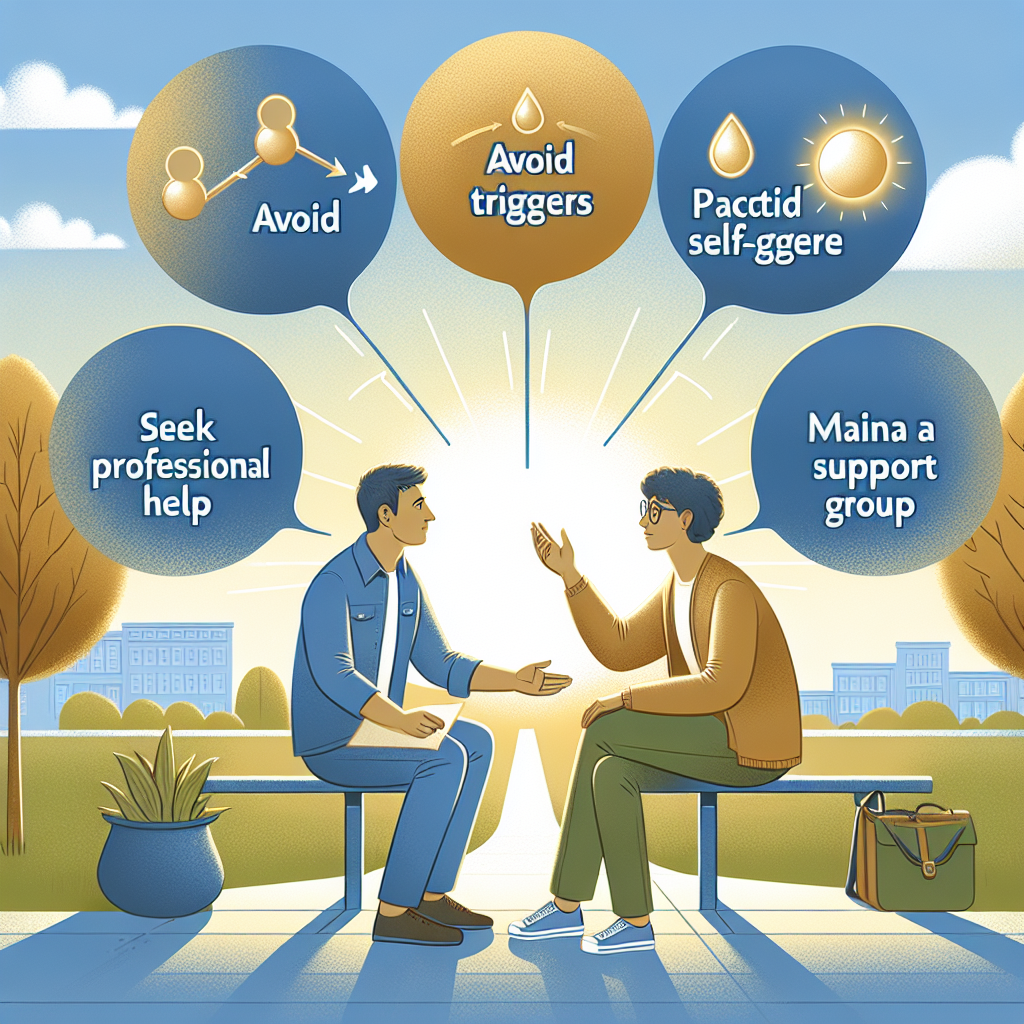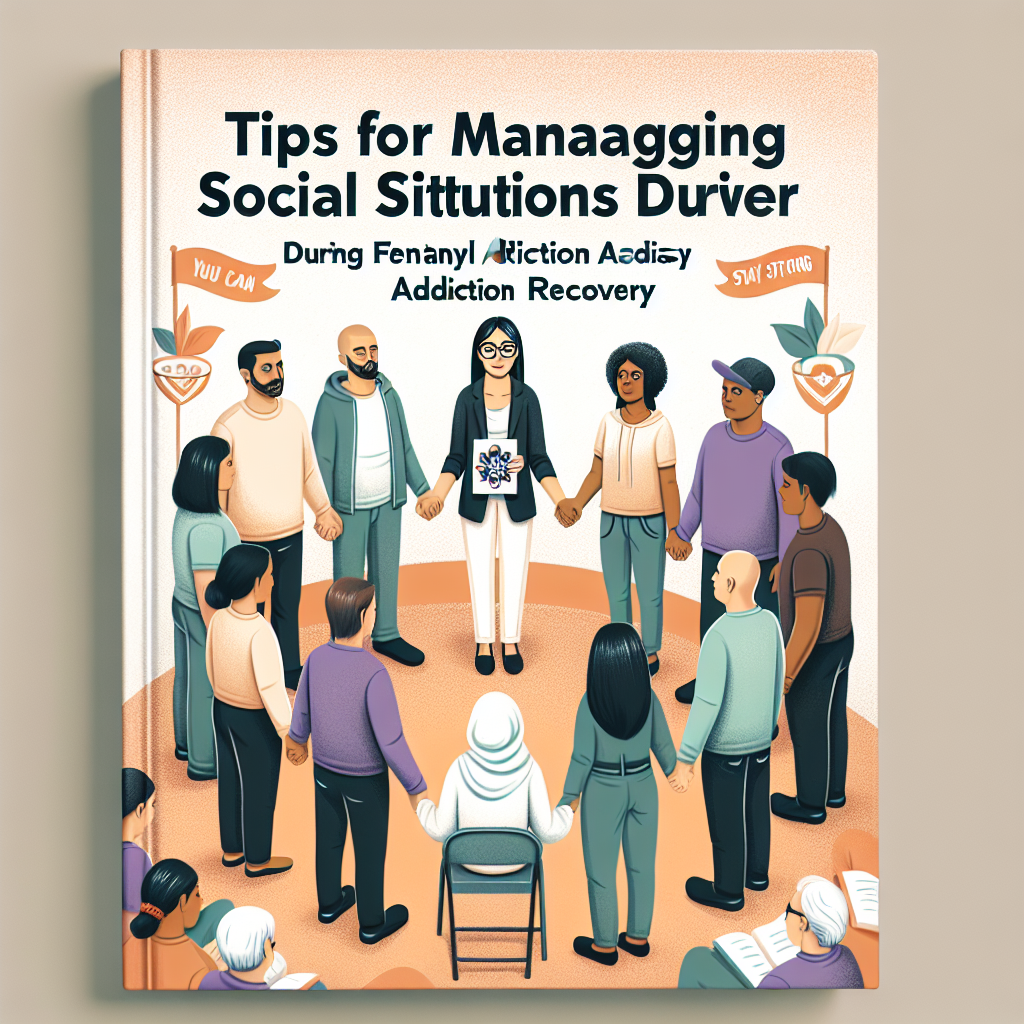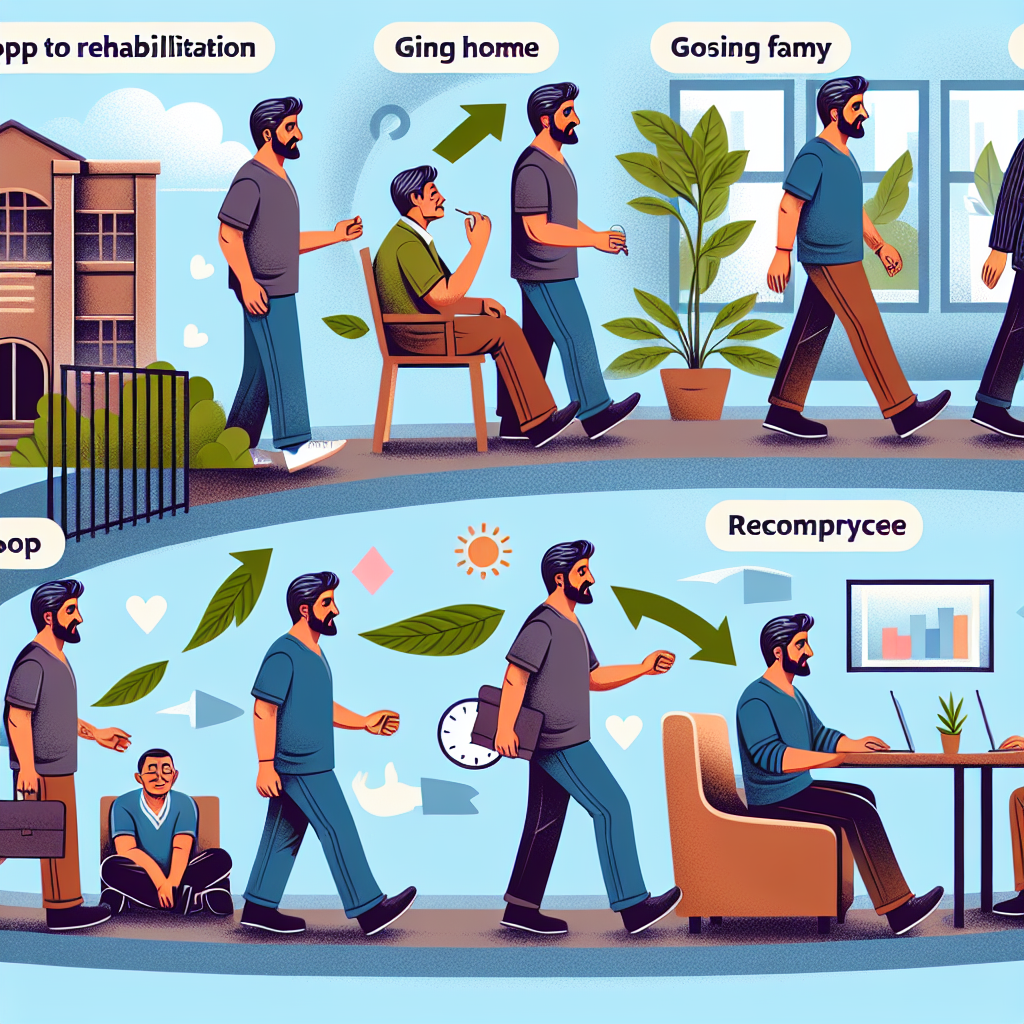-
Table of Contents
“Navigate Social Waters: Empowering Tips for Fentanyl Addiction Recovery”
Introduction

Managing social situations during fentanyl addiction recovery can be challenging but is crucial for long-term success. Recovery often involves navigating environments and interactions that may trigger cravings or stress. To effectively manage these situations, it is essential to develop strategies that promote resilience and support. This includes setting boundaries, seeking supportive relationships, practicing self-care, and being prepared with coping mechanisms. By implementing these tips, individuals in recovery can better handle social pressures and maintain their commitment to sobriety.
Building a Support Network for Fentanyl Addiction Recovery
Building a strong support network is crucial for anyone recovering from fentanyl addiction. The journey to sobriety is often fraught with challenges, and having a reliable support system can make a significant difference. One of the first steps in building this network is to identify individuals who genuinely care about your well-being. These could be family members, close friends, or even colleagues who have shown understanding and compassion. It’s essential to communicate openly with them about your struggles and your commitment to recovery. By doing so, you create a foundation of trust and mutual respect, which is vital for any support network.
In addition to personal relationships, consider joining support groups specifically designed for individuals recovering from addiction. These groups provide a safe space to share experiences, gain insights, and receive encouragement from others who are on a similar path. The sense of community and shared understanding can be incredibly empowering. Moreover, many support groups are facilitated by professionals who can offer valuable advice and resources. Attending these meetings regularly can help you stay focused on your recovery goals and remind you that you are not alone in this journey.
While building your support network, it’s also important to set boundaries. Recovery is a delicate process, and certain social situations or relationships may trigger cravings or negative emotions. Be mindful of the environments you expose yourself to and the people you interact with. It’s perfectly okay to distance yourself from individuals who may not be supportive of your recovery or who engage in behaviors that could jeopardize your progress. Prioritizing your mental and emotional health is not only necessary but also a form of self-respect.
Another key aspect of managing social situations during recovery is to develop effective communication skills. Being able to express your needs, concerns, and boundaries clearly can prevent misunderstandings and reduce stress. Practice assertiveness in your interactions, and don’t hesitate to seek help when needed. Whether it’s asking a friend to accompany you to a social event or requesting a loved one to check in on you regularly, clear communication can strengthen your support network and enhance your recovery experience.
Incorporating healthy activities into your social life can also be beneficial. Engaging in hobbies, sports, or volunteer work can provide a sense of purpose and fulfillment, which are essential for long-term recovery. These activities can also introduce you to new social circles that are more aligned with your recovery goals. Surrounding yourself with positive influences and engaging in meaningful activities can significantly boost your morale and keep you motivated.
Lastly, don’t underestimate the power of professional help. Therapists, counselors, and medical professionals can offer specialized support that complements your personal and group networks. They can help you develop coping strategies, address underlying issues, and monitor your progress. Regular check-ins with a healthcare provider can also ensure that you are on the right track and make any necessary adjustments to your recovery plan.
In conclusion, building a support network for fentanyl addiction recovery involves a combination of personal relationships, support groups, healthy activities, and professional help. By surrounding yourself with understanding and supportive individuals, setting clear boundaries, and engaging in positive activities, you can create a robust support system that will significantly enhance your recovery journey. Remember, recovery is a continuous process, and having a strong support network can make all the difference.
Strategies for Navigating Social Events While in Recovery
Navigating social events while in recovery from fentanyl addiction can be a daunting task, but with the right strategies, it is entirely possible to manage these situations successfully. One of the first steps in preparing for social events is to set clear boundaries. Communicate your needs and limitations to close friends and family members who will be present. By doing so, you create a support system that understands your journey and can help you avoid triggers. Additionally, it is crucial to have an exit plan. Knowing that you can leave a situation if it becomes overwhelming provides a sense of control and security.
Another effective strategy is to bring a sober companion. This person can offer emotional support and help you stay accountable. Having someone who understands your recovery process can make a significant difference in how you handle social pressures. Moreover, it is beneficial to practice responses to potential offers of substances. Rehearsing what you will say if someone offers you drugs or alcohol can reduce anxiety and make it easier to decline. Phrases like, “No, thank you, I’m in recovery,” or “I’m not drinking tonight,” can be simple yet powerful ways to assert your boundaries.
In addition to these preparatory steps, it is essential to focus on self-care before and after social events. Engaging in activities that promote mental and physical well-being can help you maintain a balanced state of mind. This might include exercise, meditation, or spending time in nature. By prioritizing self-care, you build resilience and reduce the likelihood of feeling overwhelmed during social interactions.
Furthermore, it is helpful to identify and avoid high-risk situations. If certain environments or people are closely associated with your past substance use, it may be wise to steer clear of them, especially in the early stages of recovery. Instead, seek out social events that align with your new lifestyle. Attending gatherings where alcohol and drugs are not the focal points can provide a safer and more enjoyable experience.
Another key aspect of managing social situations is to stay connected with your support network. Regularly attending support group meetings, whether in person or online, can reinforce your commitment to recovery and provide a sense of community. Sharing your experiences and hearing from others who are on a similar path can offer valuable insights and encouragement.
Moreover, it is important to celebrate your progress. Acknowledge the milestones you achieve, no matter how small they may seem. Celebrating your successes can boost your confidence and motivate you to continue on your recovery journey. Remember that recovery is a process, and each step forward is a testament to your strength and determination.
Lastly, maintaining a positive mindset is crucial. While it is natural to feel apprehensive about social situations, focusing on the positive aspects of your recovery can help shift your perspective. Embrace the opportunity to reconnect with loved ones, make new friends, and enjoy activities that bring you joy. By approaching social events with a positive attitude, you can create meaningful and fulfilling experiences that support your recovery.
In conclusion, managing social situations during fentanyl addiction recovery requires a combination of preparation, self-care, and support. By setting boundaries, practicing responses, and staying connected with your support network, you can navigate social events with confidence and resilience. Remember to celebrate your progress and maintain a positive mindset, as these strategies will empower you to thrive in your recovery journey.
Communicating Boundaries and Needs to Friends and Family
Navigating social situations during fentanyl addiction recovery can be a complex and emotionally charged experience. One of the most crucial aspects of this journey is effectively communicating your boundaries and needs to friends and family. This process not only helps in maintaining your sobriety but also fosters a supportive environment that can significantly enhance your recovery journey. To begin with, it is essential to approach these conversations with honesty and clarity. Being transparent about your struggles and the steps you are taking towards recovery can help your loved ones understand the gravity of your situation. This openness can pave the way for more meaningful and supportive interactions, as it allows them to see the genuine effort you are putting into overcoming your addiction.
Moreover, setting clear boundaries is vital in protecting your mental and emotional well-being. It is important to identify situations or behaviors that may trigger a relapse and communicate these to your friends and family. For instance, if attending social gatherings where substances are present poses a risk, it is perfectly acceptable to decline such invitations. By articulating your boundaries, you are not only safeguarding your recovery but also empowering yourself to take control of your environment. It is equally important to express your needs during this time. Recovery is a challenging process that often requires external support. Whether it is seeking emotional encouragement, practical assistance, or simply a listening ear, do not hesitate to ask for what you need. Your loved ones may not always know how to help, so providing them with specific ways they can support you can make a significant difference.
In addition, practicing assertive communication can be incredibly beneficial. This involves expressing your thoughts and feelings in a direct yet respectful manner. By doing so, you can ensure that your message is conveyed clearly without causing unnecessary conflict or misunderstanding. For example, using “I” statements such as “I feel overwhelmed when…” or “I need support with…” can help in articulating your needs without sounding accusatory. Furthermore, it is important to recognize that not everyone may respond positively to your boundaries and needs. Some individuals may struggle to understand your situation or may have their own preconceived notions about addiction and recovery. In such cases, it is crucial to remain patient and compassionate, both towards yourself and others. Remember that educating your loved ones about addiction and recovery can be a gradual process, and it may take time for them to fully grasp the complexities involved.
Additionally, seeking professional guidance can be immensely helpful. Therapists, counselors, and support groups can provide you with strategies and tools to effectively communicate with your loved ones. They can also offer a safe space to practice these conversations and receive constructive feedback. Lastly, it is important to celebrate the small victories along the way. Recovery is a journey filled with ups and downs, and acknowledging your progress, no matter how minor it may seem, can boost your confidence and motivation. By maintaining open lines of communication and fostering a supportive network, you are laying a strong foundation for a successful recovery.
In conclusion, managing social situations during fentanyl addiction recovery requires a delicate balance of honesty, assertiveness, and patience. By clearly communicating your boundaries and needs to friends and family, you can create an environment that not only supports your sobriety but also strengthens your relationships. Remember that you are not alone in this journey, and with the right support and strategies, you can overcome the challenges and emerge stronger than ever.
Finding Sober Activities and Social Groups
Navigating social situations during fentanyl addiction recovery can be challenging, but finding sober activities and social groups can significantly enhance your journey towards a healthier, drug-free life. Engaging in activities that do not involve substance use can help you build a supportive network, develop new interests, and reinforce your commitment to sobriety. To begin with, it is essential to identify activities that genuinely interest you and align with your values. This can range from physical activities like hiking, yoga, or joining a sports team, to more creative pursuits such as painting, writing, or playing a musical instrument. By immersing yourself in these activities, you not only distract yourself from cravings but also discover new passions that can bring joy and fulfillment to your life.
Transitioning to a sober lifestyle often means reevaluating your social circle. Surrounding yourself with individuals who support your recovery is crucial. One effective way to do this is by joining support groups specifically designed for people in recovery. These groups provide a safe space to share experiences, gain insights, and receive encouragement from others who understand the challenges you face. Additionally, many communities offer sober meetups and events where you can connect with like-minded individuals in a fun and supportive environment.
Volunteering is another excellent way to find sober activities and build a positive social network. By giving back to your community, you not only help others but also gain a sense of purpose and accomplishment. Volunteering can introduce you to new people who share your commitment to making a difference, further expanding your support system. Moreover, the act of helping others can be incredibly therapeutic and reinforce your resolve to stay sober.
Engaging in educational pursuits can also be a valuable strategy. Enrolling in a class or workshop allows you to learn new skills, meet new people, and keep your mind occupied. Whether it’s a cooking class, a language course, or a workshop on personal development, these activities can provide a sense of achievement and help you build a new identity that is not centered around substance use.
It is also important to practice self-care and mindfulness. Activities such as meditation, journaling, and spending time in nature can help you stay grounded and focused on your recovery goals. These practices can reduce stress, improve mental clarity, and enhance your overall well-being, making it easier to navigate social situations without the crutch of substances.
While finding sober activities and social groups is vital, it is equally important to set boundaries and communicate your needs clearly. Letting friends and family know about your commitment to sobriety can help them support you better. If certain social situations or individuals trigger cravings, it is okay to decline invitations or suggest alternative plans that align with your recovery goals.
In conclusion, managing social situations during fentanyl addiction recovery involves a combination of finding engaging sober activities, building a supportive network, and practicing self-care. By exploring new interests, joining support groups, volunteering, and setting clear boundaries, you can create a fulfilling and drug-free life. Remember, recovery is a journey, and every step you take towards finding joy and connection in sober activities brings you closer to lasting sobriety.
Q&A
1. **How can I handle social events where drugs might be present?**
– Plan ahead by bringing a sober friend for support, have an exit strategy, and practice saying no to offers of drugs.
2. **What should I do if I feel overwhelmed in a social situation?**
– Take a break by stepping outside or finding a quiet space, practice deep breathing exercises, and remind yourself of your recovery goals.
3. **How can I communicate my recovery status to friends and family?**
– Be honest and direct, explain the importance of your recovery, and ask for their support and understanding in avoiding drug-related activities.
4. **What are some strategies for building a new social network?**
– Join support groups, participate in sober activities and hobbies, and connect with others who are also in recovery or living a sober lifestyle.
Conclusion
Managing social situations during fentanyl addiction recovery requires careful planning and self-awareness. Key strategies include setting clear boundaries, avoiding high-risk environments, and seeking support from trusted friends or support groups. It’s essential to communicate openly about your recovery needs and to have a plan in place for handling triggers or cravings. Prioritizing self-care and engaging in healthy, sober activities can also help maintain focus on recovery goals. By implementing these tips, individuals can navigate social interactions more confidently and reduce the risk of relapse.



